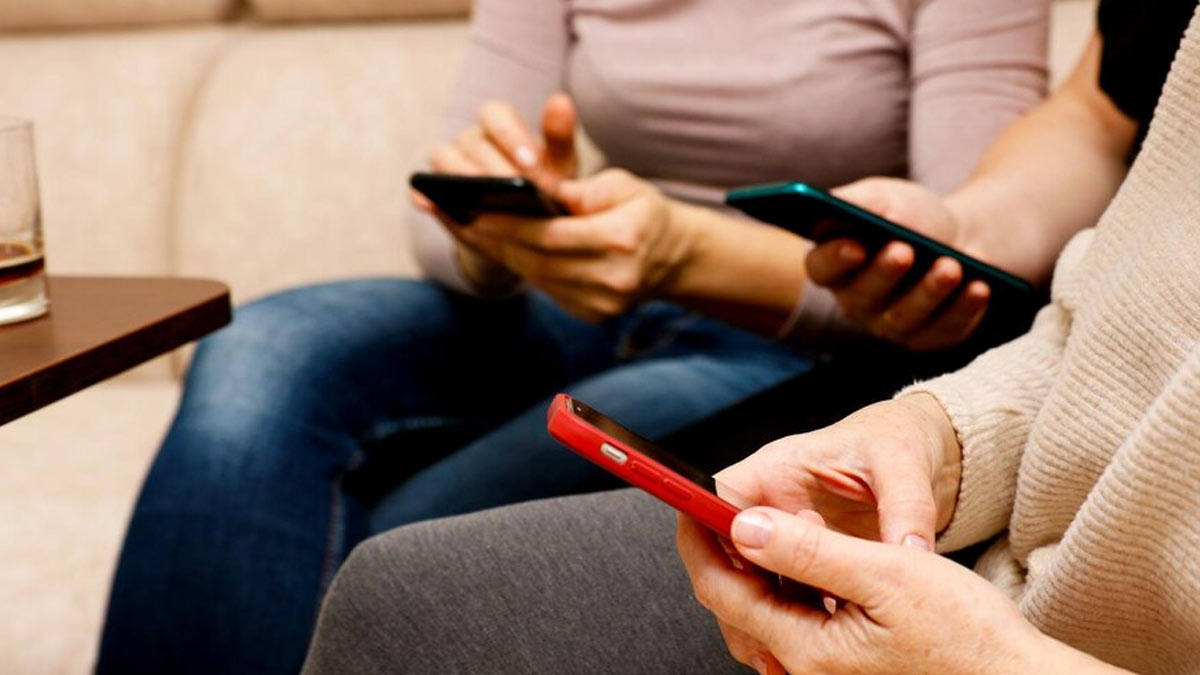
Are you someone who constantly checks their phone for notifications, even in situations where it may be inappropriate or unsafe, such as during a meeting or while driving? Do you feel uncomfortable or anxious when the phone is not within reach or when unable to use it, even for short periods? This may be an indicator of a condition known as nomophobia, short for 'No Mobile Phone Phobia'. It refers to the fear or anxiety of being without a mobile phone or being unable to use it for some reason. In this article, we explain nomophobia, its symptoms, causes, and treatment.
Table of Content:-
What is Nomophobia?

According to the Journal of Family Medicine and Primary Care (JFPMC), nomophobia refers to a psychological state wherein individuals fear being disconnected from mobile phone connectivity. Several psychological factors contribute to excessive mobile phone use, including low self-esteem and extroverted personality traits. Additionally, other mental health conditions, such as social phobia, social anxiety, and panic disorder can exacerbate symptoms associated with nomophobia.
Also Read: Anxious Of Holes? Expert Explains Tryponophobia And Its Symptoms, Causes And Treatment
Causes of Nomophobia
Our expert, Dr Shambhavi Jaiman, Consultant Psychiatrist, Fortis Memorial Research Institute, Gurugram said, “Nomophobia is predominantly observed in younger individuals who have been extensively exposed to mobile phones and social media. In today's digitalised world, nomophobia is becoming increasingly prevalent, as society is deeply intertwined with technology to the point where not having a phone can feel abnormal and induce distress.”
She added, “Another significant factor is the current workplace culture, where there is constant concern about missing work-related emails or text messages. Additionally, there is a general apprehension about missing out on social media interactions when access to a phone is unavailable.”
Based on research from 2019, nearly 53% of individuals in Britain who possessed a phone in 2008 experienced anxiety when they were without their phone, encountered a dead battery or had no service available.
Symptoms of Nomophobia

While nomophobia is not officially recognised as a clinical diagnosis, it is often associated with the following symptoms:
- Difficulty turning off your phone
- Checking your phone constantly for missed messages, emails, and phone calls
- Charging your phone's battery excessively, even when it's almost full
- Carrying your phone with you everywhere, including into the bathroom
- Frequently checking to ensure that you have your phone with you
- Fear of being unable to connect to a cellular network or Wi-Fi
- Worrying about negative events and feeling unable to seek assistance
- Concerns about losing one's online identity or presence
- Avoiding activities or social events to spend more time on a mobile device
Also Read: Is Your Child Addicted To Phone? Expert Lists Tips To Reduce Smartphone Addiction In Children
How to Manage Nomophobia
Managing the anxiety associated with mobile phone usage involves implementing certain changes in one's habits. Follow these tips to manage this condition:
- Engage in regular digital detoxes
- Minimise the number of notifications received on their device
- Maintain awareness of their phone usage
- Seeking professional assistance is important if one finds themselves unable to manage their phone dependency.
Dr Jaiman highlighted, “While there is no definitive cure for nomophobia, therapists may recommend exposure therapy, Cognitive-Behavioral Therapy (CBT), or a combination of both to alleviate symptoms. In certain cases, medication may be prescribed by a doctor to address anxiety or depression symptoms. CBT focuses on addressing negative and irrational cognitive patterns that contribute to maladaptive behaviours.”
[Disclaimer: This article contains information provided by an expert and is for informational purposes only. Hence, we advise you to consult your expert if you are dealing with any health issues to get the necessary treatment.]
Also watch this video
How we keep this article up to date:
We work with experts and keep a close eye on the latest in health and wellness. Whenever there is a new research or helpful information, we update our articles with accurate and useful advice.
Current Version